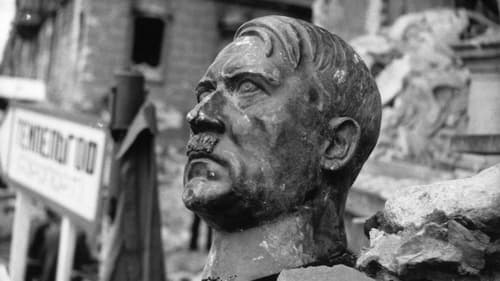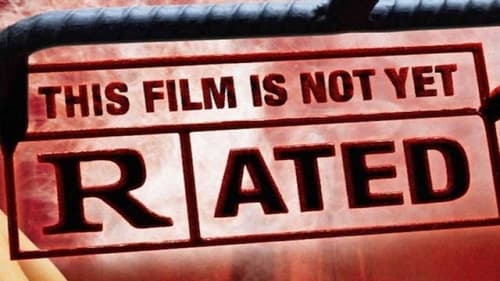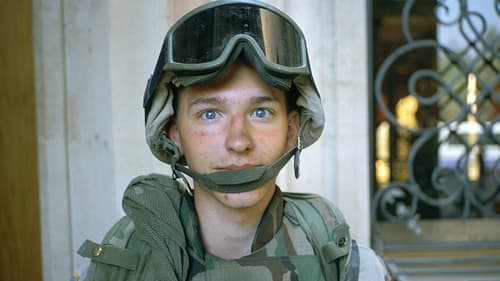Michael Tucker
출생 : 2018-05-01,
약력
Michael Tucker, an American documentary film director, was born in Honolulu, Hawaii. He is currently best known for his recent documentary The Prisoner or: How I Planned to Kill Tony Blair. He also directed a documentary in Iraq during the 2003 Iraqi War entitled Gunner Palace.
Description above from the Wikipedia article Michael Tucker(director), licensed under CC-BY-SA, full list of contributors on Wikipedia.

Editor
This provocative consideration of the lasting influence and draw of Hitler provides insight into the resurgence of white supremacy, antisemitism, and the weaponization of history.

Producer
This provocative consideration of the lasting influence and draw of Hitler provides insight into the resurgence of white supremacy, antisemitism, and the weaponization of history.

Director of Photography
This provocative consideration of the lasting influence and draw of Hitler provides insight into the resurgence of white supremacy, antisemitism, and the weaponization of history.

Writer
This provocative consideration of the lasting influence and draw of Hitler provides insight into the resurgence of white supremacy, antisemitism, and the weaponization of history.

Director
This provocative consideration of the lasting influence and draw of Hitler provides insight into the resurgence of white supremacy, antisemitism, and the weaponization of history.

Director
U.S. citizens in more than 25 states are followed as they set out on the morning of the presidential election, throughout the course of the day, until the polls close in the evening and the results are revealed.

Director
Petra Epperlein and Michael Tucker take a powerfully personal journey through the former East Germany, as Epperlein investigates her father’s 1999 suicide and the possibility that he may have worked as a spy for the dreaded Stasi security service.

Director of Photography
There are only four outdoor phone booths left in all of New York City—this is a late night conversation with one of them.

Editor
There are only four outdoor phone booths left in all of New York City—this is a late night conversation with one of them.

Director
There are only four outdoor phone booths left in all of New York City—this is a late night conversation with one of them.

Director of Photography
Filmmaker Liz Garbus investigates the mysterious tragedy of Diane Schuler in an effort to understand what went wrong.

Director of Photography
FIGHTVILLE is about the art and sport of fighting: a microcosm of life, a physical manifestation of that other brutal contest called the American Dream...

Editor
FIGHTVILLE is about the art and sport of fighting: a microcosm of life, a physical manifestation of that other brutal contest called the American Dream...

Director
FIGHTVILLE is about the art and sport of fighting: a microcosm of life, a physical manifestation of that other brutal contest called the American Dream...

Editor
Michael Tucker and Petra Epperlein reveal the lives of post Iraq from a Congressional candidate in Buffalo to a cage fighter in Louisiana, set against the backdrop of the 2008 election. From Jon Powers's political fight for a congressional seat to Wilf Stuart's family struggling with his brother's combat deployment, this poignant piece offers a picture of both the hope and loss that remain after the fighting ends.

Director of Photography
Michael Tucker and Petra Epperlein reveal the lives of post Iraq from a Congressional candidate in Buffalo to a cage fighter in Louisiana, set against the backdrop of the 2008 election. From Jon Powers's political fight for a congressional seat to Wilf Stuart's family struggling with his brother's combat deployment, this poignant piece offers a picture of both the hope and loss that remain after the fighting ends.

Producer
Michael Tucker and Petra Epperlein reveal the lives of post Iraq from a Congressional candidate in Buffalo to a cage fighter in Louisiana, set against the backdrop of the 2008 election. From Jon Powers's political fight for a congressional seat to Wilf Stuart's family struggling with his brother's combat deployment, this poignant piece offers a picture of both the hope and loss that remain after the fighting ends.

Screenplay
Michael Tucker and Petra Epperlein reveal the lives of post Iraq from a Congressional candidate in Buffalo to a cage fighter in Louisiana, set against the backdrop of the 2008 election. From Jon Powers's political fight for a congressional seat to Wilf Stuart's family struggling with his brother's combat deployment, this poignant piece offers a picture of both the hope and loss that remain after the fighting ends.

Director
Michael Tucker and Petra Epperlein reveal the lives of post Iraq from a Congressional candidate in Buffalo to a cage fighter in Louisiana, set against the backdrop of the 2008 election. From Jon Powers's political fight for a congressional seat to Wilf Stuart's family struggling with his brother's combat deployment, this poignant piece offers a picture of both the hope and loss that remain after the fighting ends.

Director
Fidelis Cloer is a self-confessed war profiteer who found The Perfect War when the US invaded Iraq. It wasn't about selling a dozen cars, or even a hundred, it was a thousand-car war where security would become the ultimate product.

Director
In 2003, Iraqi journalist Yunis Abbas was taken from his home by American soldiers and detained at Abu Ghraib prison on suspicion of planning to assassinate Tony Blair. Only thing is, he was innocent. Through his months-long ordeal played out like a comedy of errors, Yunis learned the true meaning of liberation. His unique story is told via co-director Michael Tucker's footage, Yunis's home videos and illustrations by co-director Petra Epperlein.

Self - Co-Director of 'Gunner Palace'
Kirby Dick's provocative documentary investigates the secretive and inconsistent process by which the Motion Picture Association of America rates films, revealing the organization's underhanded efforts to control culture. Dick questions whether certain studios get preferential treatment and exposes the discrepancies in how the MPAA views sex and violence.

Editor
American soldiers of the 2/3 Field Artillery, a group known as the "Gunners," tell of their experiences in Baghdad during the Iraq War. Holed up in a bombed out pleasure palace built by Sadaam Hussein, the soldiers endured hostile situations some four months after President George W. Bush declared the end of major combat operations in the country.

Director of Photography
American soldiers of the 2/3 Field Artillery, a group known as the "Gunners," tell of their experiences in Baghdad during the Iraq War. Holed up in a bombed out pleasure palace built by Sadaam Hussein, the soldiers endured hostile situations some four months after President George W. Bush declared the end of major combat operations in the country.

Producer
American soldiers of the 2/3 Field Artillery, a group known as the "Gunners," tell of their experiences in Baghdad during the Iraq War. Holed up in a bombed out pleasure palace built by Sadaam Hussein, the soldiers endured hostile situations some four months after President George W. Bush declared the end of major combat operations in the country.

Director
American soldiers of the 2/3 Field Artillery, a group known as the "Gunners," tell of their experiences in Baghdad during the Iraq War. Holed up in a bombed out pleasure palace built by Sadaam Hussein, the soldiers endured hostile situations some four months after President George W. Bush declared the end of major combat operations in the country.





